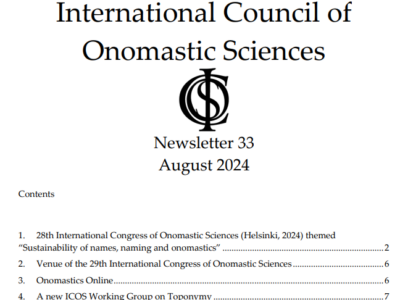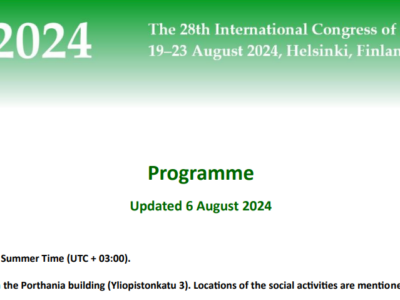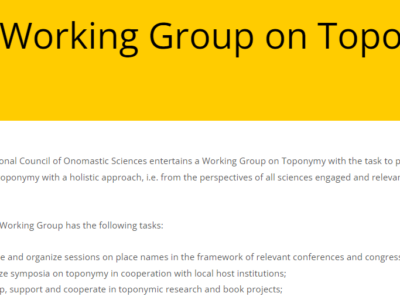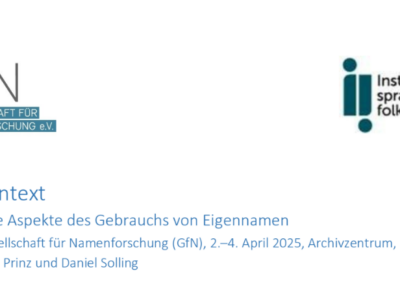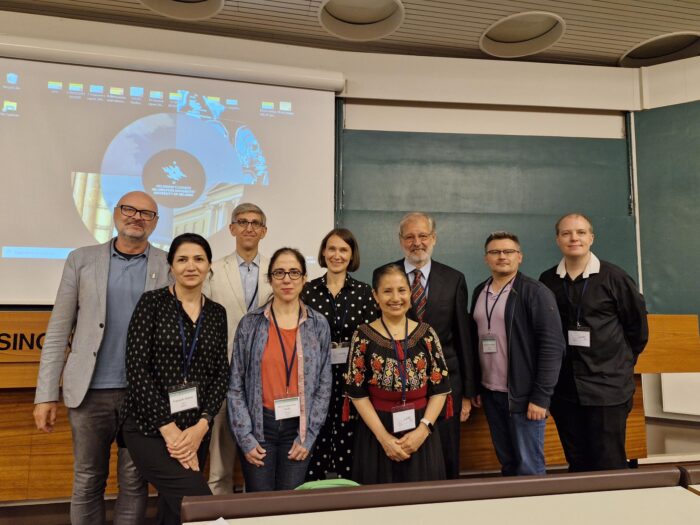
The 28th ICOS Congress in Helsinki
The 28th International Congress of Onomastic Sciences (ICOS) in Helsinki, Finland, scheduled for 2024, was a landmark event gathering scholars, researchers, and enthusiasts in the onomastics. This prestigious conference served as a platform for discussions on a wide range of topics, ranging from personal names and place names to more specialized domains like brand names and their socio-cultural implications. The ICOS Congress featured 223 papers from 39 countries (198 presented in person + 25 online presentations + 8 posters).
One of the significant themes of the conference was sustainability, explored through the lens of names and naming practices. Topics such as how names contribute to the preservation of culture, identity, and heritage, and their role in fostering sustainable communities, took center stage. For instance, Helen Kelly-Holmes from the University of Limerick will discuss how small, often minoritized languages are employed in brand naming to promote sustainability. Her study dives into how such languages, like Irish, help reinforce local identity and authenticity in sustainability-focused branding.
Another critical perspective came from Jane Pilcher of Nottingham Trent University, who explores how people’s names intersect with sustainability, particularly in terms of equality and human rights. Her analysis delves into practices like name changes in adoption, pronunciation issues in diverse educational settings, and ethical considerations in research anonymization. Her work underscores how names are not just labels but potent tools that influence social inclusion, dignity, and cultural continuity.
Väinö Syrjälä’s presentation focused on how names navigate natural and linguistic landscapes, specifically in national parks in Sweden and Finland. His work highlights the use of names in guiding people through protected areas in ways that balance preservation with public access, offering insights into sustainable tourism.
Urban transformation and its impact on local place names also emerged as a topic of interest. Researchers Terhi Ainiala and Pia Olsson investigate the emotional and symbolic significance of names in neighborhoods undergoing rapid change, like Vuosaari in Helsinki. Their research sheds light on how residents maintain a sense of place and continuity amidst environmental and social shifts, reflecting on how names evolve or resist change in such contexts. The congress further addresses issues of identity and multiculturalism, as illustrated by Eduardo Tadeu R. Amaral’s study on attitudes towards foreign names in Spain. His research examines how names adapt to official languages and what this adaptation reveals about societal perceptions and the balance between cultural integration and preservation.
The event is not limited to contemporary issues; it also delves into historical perspectives. Marit Alas examines the continuity and changes in place names in coastal Estonia over time, illustrating how names encapsulate both historical significance and shifting cultural landscapes. Meanwhile, discussions on how minority languages are represented through toponyms, like those in Romania or the Tlingit language in Canada, demonstrate the global importance of safeguarding linguistic diversity through naming practices.
The conference’s focus extends beyond human names to other fascinating areas such as animal names, as seen in Diane Allen West’s study on “equinonyms” or horse names, which argues for their inclusion in official onomastic studies due to their rich historical and cultural significance.
Overall, the 28th ICOS offers a comprehensive exploration of onomastics, linking the study of names with broader cultural, social, and environmental challenges. It illustrates how names serve as more than just identifiers; they are dynamic carriers of history, identity, and sustainability that adapt to changing times while maintaining continuity in human societies.


